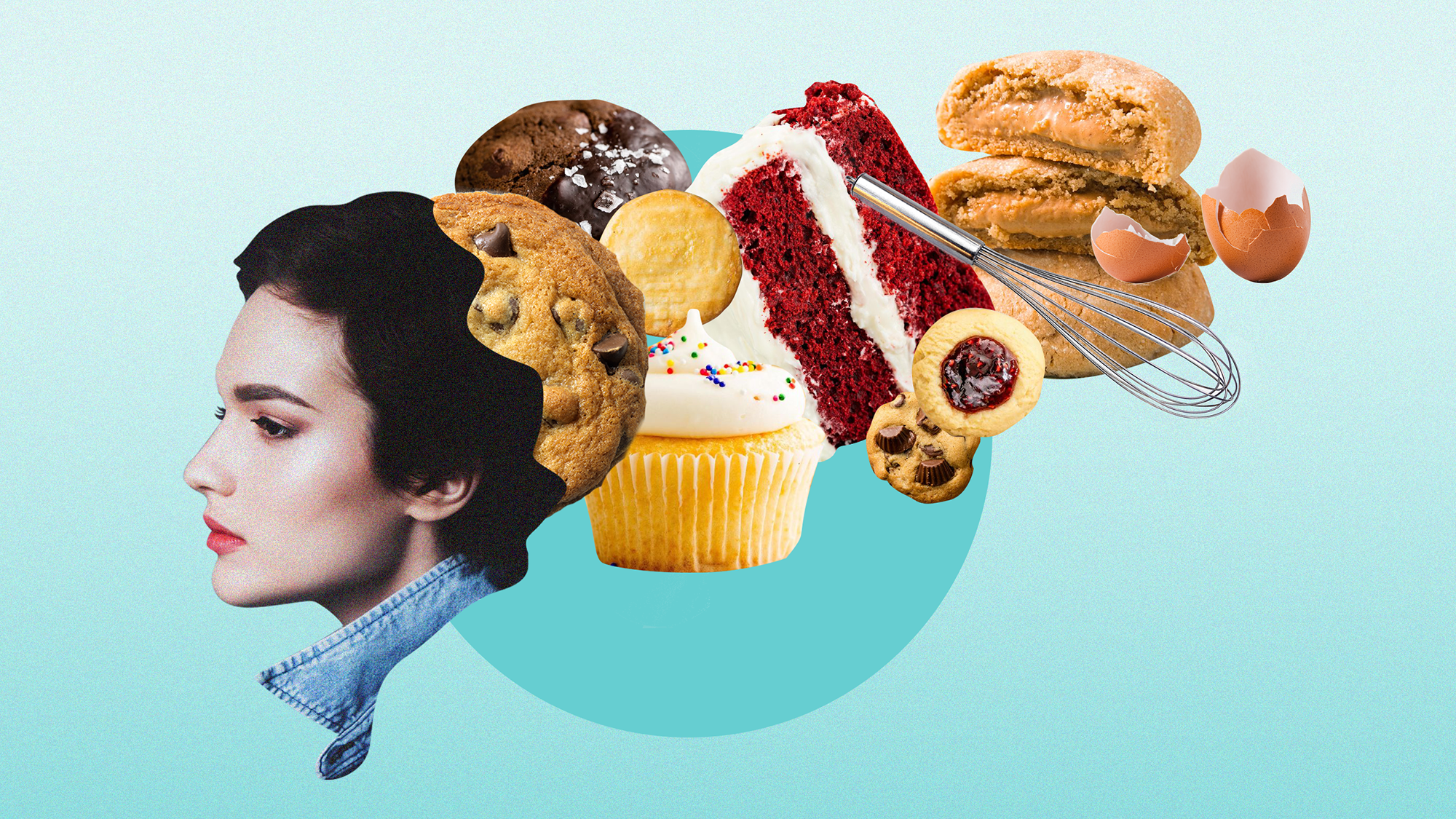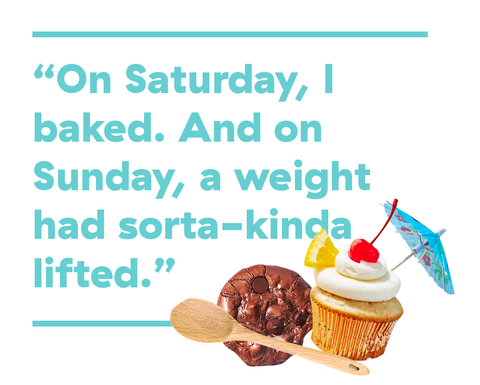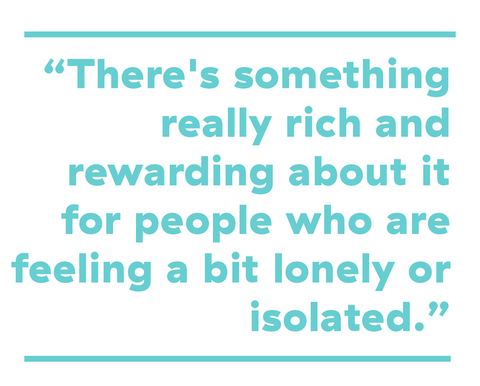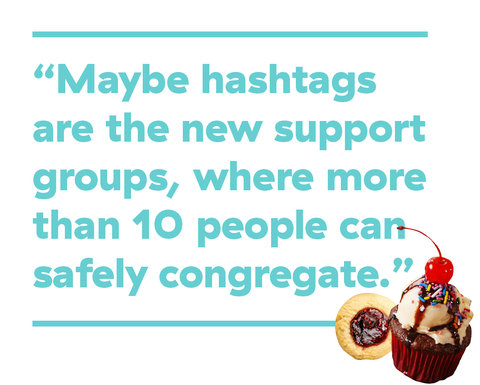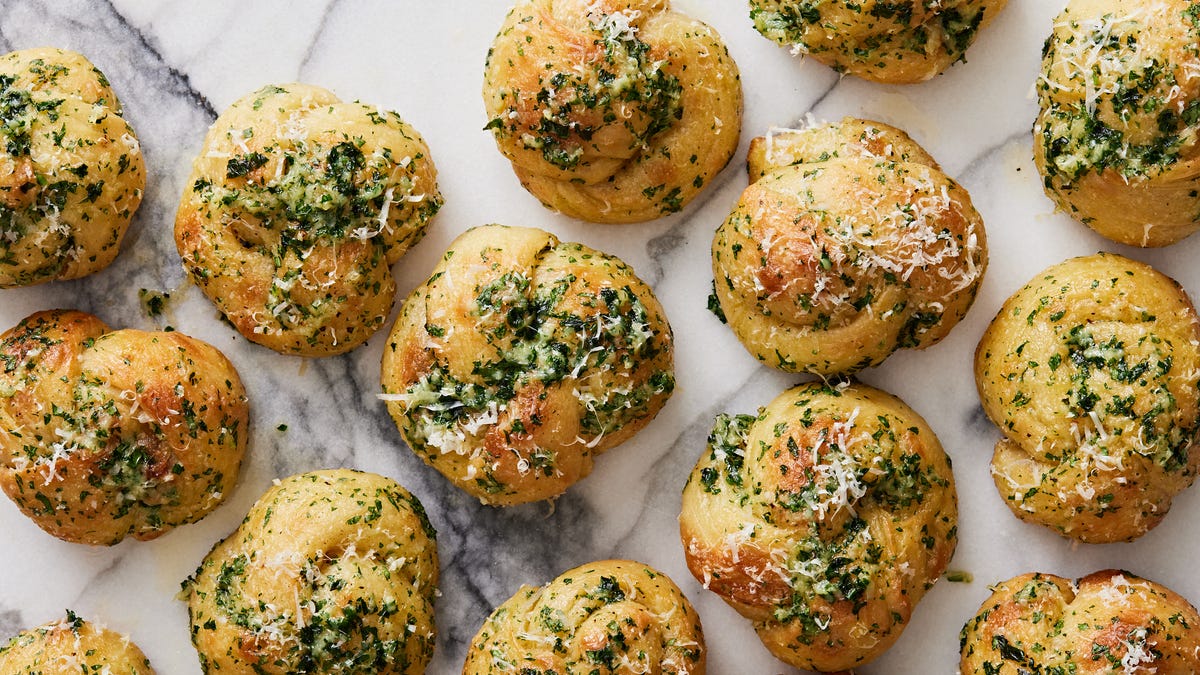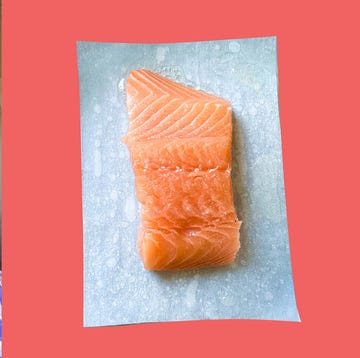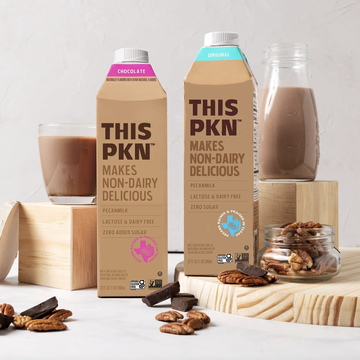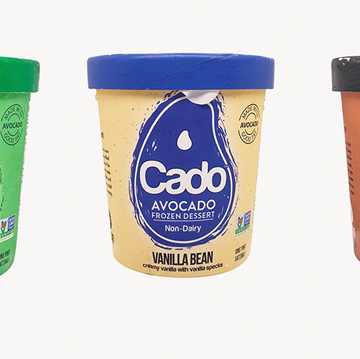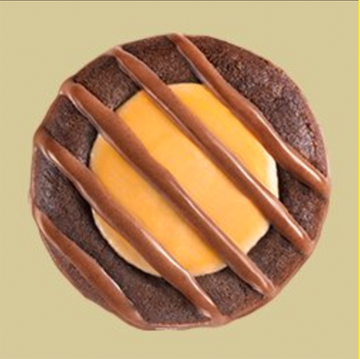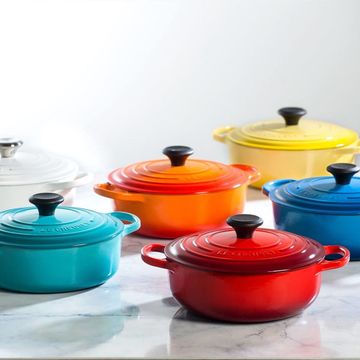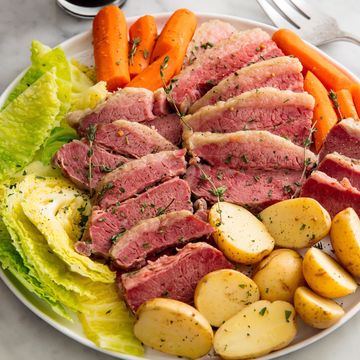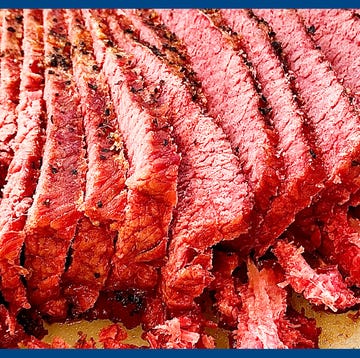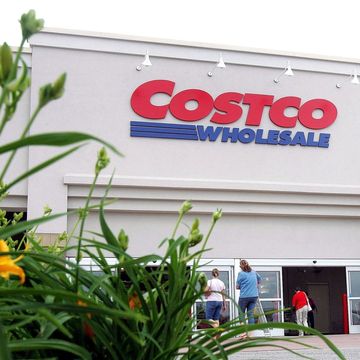Last Monday through Friday—the week coronavirus came for New York—was a stress-induced shit show that included three canceled trips, experiments with CBD, obsessive temperature taking, and a half-hearted yet incredibly loud revue of top 40 songs from the floor of my 800-square-foot apartment.
Much to my chagrin (and your disbelief, surely), none of the above helped mitigate any anxiety I felt.
But on Saturday, I baked. I posted a photo of my cookie babies to my Instagram Story, with a cutesy sticker that read: "Baking as a coping mechanism."
And on Sunday, a weight had sorta-kinda lifted. (If I were a middle-aged father of teenagers with a propensity for dad jokes, this is where I'd also acknowledge—with a wink, of course—that stressed spelled backwards is desserts...but I'm not...so I won't.)
Call it whatever you want: stress baking, anxiety baking, procrastibaking. When people feel anxious, they look for something to do, a distraction of sorts, and baking provides just that for many people. There are a whole host of reasons for this: Dr. Mary McNaughton-Cassill, a clinical psychologist with a disaster stress management background and a professor of psychology at the University of Texas, San Antonio, says some of it's just allowing yourself to be creative—adding flavor, changing color, forming shapes. Then you've got the sensory triggers. "The smell of spices and vanilla are comforting, and [they] often remind us of happy times. Olfactory scents are particularly linked to areas of the brain that involve emotions and memory," she suggests. There's also the magic of it all: "Mixing inert substances together, and watching them rise can bring out the mystic, or the chemist, in all of us."
Humans naturally crave routine, though, and that's what's at the root of baking. "There is a rhythm or pattern to baking," says Dr. Mary McNaughton-Cassill. "It feels familiar and can even lead to a mindful state."
Mindfulness, for the uninitiated, is the quality of being aware and engaged, leading to reflection rather than reaction. Many psychologists believe it's one of the best ways to combat anxiety and depression. When you're baking, you can't help but be engaged; a lack of attention during an activity that requires such scientific precision could screw everything up. And when it seems like the world is ending, you don't want fucked up cookies. You just don't. So you embed yourself so deeply in the measuring, and the pouring, and the mixing, and the rolling, and the shaping, and whatever else your recipe asks you to do. And by the end, you've got a little less stress and a dozen more cupcakes.
Having something to show for it, like said dozen cupcakes, is another way baking can play welcome tricks on your brain. "One of the stressors of modern life is that, for many of us, our jobs don't have a tangible outcome. We work all day—in customer service, healthcare, education, accounting, insurance—and feel tired when we get home, but we don't have a discernible way to measure what we have accomplished," Dr. McNaughton-Cassill says. You might be fond of the endless hustle, sure, but consider this: "In contrast, throughout much of history people had to engage in physical, survival-based activities like growing food, building their own homes, and sewing, which while physically hard, provide a strong sense of accomplishment. I think this is why there has been such a resurgence of interest in crafts, home remodeling, and cooking. We want to feel that we can still do things that impact the environment." The environment, in this case, being your home and the mood of the people in it.
And if Instagram's any indicator, we're all just staying inside, doing our best to impact our environment positively…with baked goods. The cookies I posted were certainly not the only ones being shared. They were just another 10-second snippet on Stories among videos of whirling KitchenAid stand mixers and Boomerangs of oven doors opening and closing.
"There's something really rich and rewarding about it for people who are feeling a bit lonely or isolated," Valerie Van Galder explains. She helms Depressed Cake Shop, a digital resource for those looking to bake their way through hard times. As often as possible, she and her team assist people across the country in hosting pop-up bake sales, with proceeds going to local mental health charities like the National Alliance on Mental Illness and Baby Blues Connection. The treats sold tend to be grey with pops of color that symbolize little glimmers of hope, and they've raised hundreds of thousands of dollars over the last seven years. Valerie never knows what kind of day people are having when they come to her page, so she tries to keep it an uplifting space.
"So often we knock social media," she explains, "but I think this is a time when it actually can be really, really healing because it makes you feel much less alone. People who have common interests, they're able to find them through places like Instagram and they can feel the love of the community."
Last week, Valerie started a hashtag to corral stress bakers who are currently quarantining—#bakeyourmindoffit. There are tagged posts of intricately scored sourdough and toilet paper-shaped sugar cookies. Whether the product is highbrow or lowbrow doesn't matter—she agrees with Dr. McNaughton-Cassill: "Baking is super absorbing, so it's very difficult to have anxiety. It chases bad thoughts away because you have to focus on making sure that you measure your flour. You have to have exactly the right amount of baking powder and exactly the right amount of baking soda if you want the result to be what you're aiming for."
Maybe hashtags are the new support groups, where more than 10 people can safely congregate. Ali Maffucci of Inspiralized fame (she didn't invent zoodles, but she's probably the reason you know about them) began one last week, too. "So I keep saying it, but cooking is medicinal for me," she wrote in her Instagram Story. "It's really helping me keep calm amidst all the unknown right now. So, I’m starting a hashtag that I hope you'll join me in." That hashtag, #letscookthroughthis, has been used in nearly 200 posts—pretty pancake towers and simple 8x8s with blondies.
"I received an influx of direct messages from people saying that they loved the idea, the positivity, and that they felt similarly—that cooking is providing a therapeutic outlet right now," Ali explains. For her, it's about that connection with her "little corner of the internet" and with her family, too. "I'm cooking more than ever with my toddler son, Luca. He used to just be my resident cheese sprinkler, but now I have him involved in more steps: whisking eggs, sprinkling fruit into his oatmeal, pouring ingredients into baking batters. There's definitely more love in my kitchen than ever."
So is baking therapy the next art therapy? Perhaps. "I haven't heard [of it] before, but I like the idea a lot," Dr. McNaughton-Cassill reasons. "I do have friends who say that watching cooking shows relaxes them, so maybe we need to find the Bob Ross of baking."
Until we find that unicorn of a human, though—or until some ground-breaking psychologists actually start prescribing cookie-making as medicine—continue to bake off the bad juju, especially right now. Make your brownies and your sheet cakes, if it calms your nerves. Make your lemon bars and your loaves of bread to put your mind at ease. I'll be doing the same. (…Except for the bread, as the world seems to have sold out of yeast. Can someone send me some?)
Art by Alexandra Folino
Sarah Weinberg is the deputy editor at Delish and has covered food, travel, home, and lifestyle for a number of publications, including Food Network Magazine and Country Living. She's originally from the Bay Area, has an unhealthy affinity for the Real Housewives of Anywhere, and harbors strong feelings about fruit salad.
